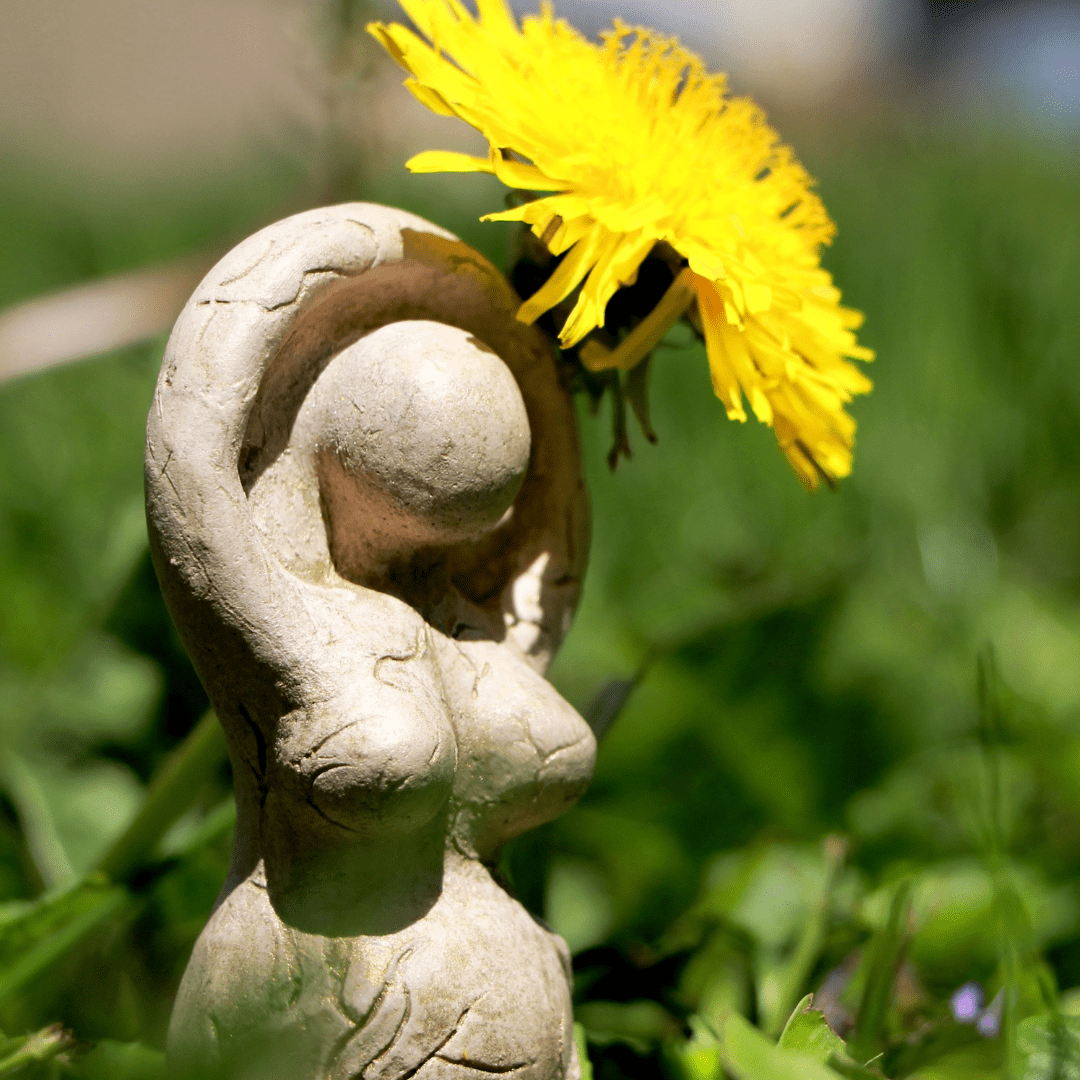If you’ve ever wondered whether you’re actually growing or just getting better at spiritual aesthetics, you’re not alone. Many of us have a shelf of books, a meditation app, maybe a mala or two, and yet the real test shows up in ordinary life. It arrives in the tense meeting where you want to clap back, the family dinner that triggers old patterns, or the quiet Saturday morning when you could choose to numb out or tell yourself the truth. That is where spiritual maturity begins to take shape. It’s not perfection. It is the slow, steady way you show up when no one is grading you.
This guide keeps it practical. We’ll define spiritual maturity in plain language, walk through seven reliable signs, and end with a simple growth plan, a bypassing check, and a gentle self-quiz. Use what helps and leave the rest. Your path is allowed to be personal.
What Is Spiritual Maturity?
Think of spiritual maturity as integrity in motion. It is the ongoing alignment between what you value and how you live. You may still get irritated, scared, or confused. The difference is that you recognize your states faster, care for yourself in them, and take responsibility for your impact. You respond more than you react. You can hold multiple truths without collapsing into cynicism or magical thinking.
In daily life, spiritual maturity looks unglamorous. You pause before sending the text you will regret. You return a message you wanted to avoid. You apologize without dressing it up as a lesson for the other person. You own your preferences without making them universal rules. It is not about stacking holy moments. It is about becoming a safe person for yourself and for others, little by little.
Spiritual maturity is different from spiritual performance. Performance chases validation. It likes the look of enlightenment more than the work of embodying compassion. Maturity is quieter. It trades drama for consistency, grand claims for small honest actions, and the craving to be right for the desire to be real.
1) From Reactivity to Response
Reactivity is fast, hot, and sticky. Someone criticizes your work and your stomach drops. Before you know it, you have fired off a message that punches back. Spiritual maturity does not remove the first surge. It stretches the space after it. In that space you breathe, name what is happening, and choose a next step that serves your values.
How it feels in practice
You catch the rush, soften your jaw, notice your feet on the ground, and count a slow breath. You ask yourself a short question: “What is needed here?” Sometimes the answer is “nothing right now.” Sometimes it is “clarify,” “set a boundary,” or simply “drink water.”
Everyday example
A friend cancels on you again. Old pattern says “prove I don’t need anyone.” A more mature response might be “I feel let down. Can we talk about it?” You are not suppressing feelings. You are choosing how you carry them.
A micro-method
Breathe. Name. Choose.
“I feel heat in my face. I am embarrassed. I choose to pause for ten minutes.” That tiny sentence can save you hours of repair.
2) Compassion With Clear Boundaries
A common myth says that to be spiritual is to be endlessly available. In truth, compassion without boundaries leads to resentment. Boundaries without compassion lead to coldness. Spiritual maturity holds both. You can care and still say no. You can remain kind while refusing to reenact the same harmful loop.
What it looks like
You make a clean request: “I’m happy to listen for fifteen minutes. Then I need to log off.” You do not apologize for having edges. You do not make the other person wrong for having needs. You simply tend to your capacity and keep your word.
People-pleasing check
If you say yes and then dream of canceling or complain to a third person, you probably crossed yourself. Mature compassion is honest up front. It will disappoint some people. It will also attract relationships where everyone breathes easier.
Three boundary sentences to practice
- “I am not available for that, although I wish you well with it.”
- “I can help with X by Friday. Anything more is not possible for me.”
- “I want to keep this conversation respectful. Let’s pause and try again later.”
3) Humility and Teachability
Spiritual maturity sounds like “I might be wrong” and “I still have something to learn.” You can be a beginner even after a decade of practice. Humility does not erase your wisdom. It makes room for growth to keep teaching you.
How it shows up
You invite feedback from people who do not flatter you. You listen without preparing your defense. You notice where you get hooked by praise or crushed by criticism and you work on that hook, not the person holding it.
The silent flex
Teachability is not about public self-deprecation. It is the quiet willingness to revise your map when reality asks for it. You change your mind in public when new information arrives. You do not cling to an identity that no longer fits.
Red flag to watch
Spiritual superiority. If you often think “I’m above this” or “they’re low vibe,” pause. The line between discernment and contempt is thin. Mature discernment protects your time without degrading anyone’s worth.
4) Integrity: Words, Values, Actions Align
Integrity is not a posture. It is the habit of matching what you say with what you do. You will still miss sometimes. Maturity shows in how quickly you notice a gap and repair it.
Money, sex, power
Those three areas reveal our real practice. Do you spend in ways that match your stated priorities? Do you seek consent in all forms, not only romance? Do you share credit, admit mistakes, and avoid using spiritual language to control outcomes? Answers become visible in small decisions.
Repair after a miss
A mature apology is simple. “I did X. It impacted you in Y way. I am sorry. Here is how I am going to change.” No sermon, no excuses. Then you follow through. Trust rebuilds with time and consistent behavior, not speeches.
One-minute integrity audit
Write three values on a sticky note. This week, before tough choices, glance at the note and ask, “Which option honors these values?” Do that often and your life starts to feel coherent.
5) Discernment Over Dogma
Discernment is your inner quality control. It keeps you from outsourcing your judgment to the loudest voice. Spiritual maturity grows discernment the way a musician grows an ear. Slowly, with attention, through many repetitions.
How it plays out
You ask good questions before adopting a practice: Does this help me be kinder and more grounded? Does it require me to abandon my critical thinking? Does it thrive in secrecy or shame? You notice love-bombing, miracle promises, and all-or-nothing thinking. You walk away even when the packaging looks impressive.
Nuance without paralysis
Discernment does not mean endless analysis. It is the ability to say yes or no with clarity and to revisit that decision when new data arrives. You are allowed to outgrow teachers. You are allowed to evolve.
Self-inquiry prompts
- What evidence do I have that this is working for me?
- What part of me wants this to be true?
- If my best friend were in this situation, what would I advise them?
6) Accountability and Repair
Intent matters. Impact matters more. Spiritual maturity holds both. You do not weaponize your good intentions to avoid responsibility. When you learn that your words harmed someone, you get curious and you make amends where possible.
A simple four-step apology
- Name the behavior without spin.
- Acknowledge the impact you caused.
- Offer a repair that fits the harm.
- Change the pattern.
The long game
You accept that some repairs take time and that forgiveness cannot be rushed. You do not turn the apology into a spectacle. You do the less glamorous part: change. Nothing says “I’m sorry” like new choices.
Self-respect in accountability
Owning your impact is not self-abandonment. You do not accept labels that are untrue. You use good mirrors and trusted counsel to discern what is yours and what is projection. Then you carry your share with courage.
7) Consistency Over Aesthetics
It is tempting to chase peak experiences and ignore simple habits. Spiritual maturity chooses consistency. Five honest minutes on the cushion beat a two-hour performance once a month. A small kindness repeated often rewires you more than a dramatic confession.
Quiet metrics
How quickly do you return to presence after a wobble? How gently do you speak to yourself when you make a mistake? How often do you keep promises to your future self, like going to bed on time or prepping food so you can think clearly tomorrow? These are not glamorous, but they change lives.
Make it stick
Tie your practice to existing routines. After brushing your teeth, place your hand on your heart and breathe five slow breaths. Before opening long messages, drink water. Before bed, name one thing you handled with maturity today. Stack tiny actions onto moments that already happen and your nervous system will cooperate.
How to Grow Spiritual Maturity: A Starter Plan
You do not need an expensive retreat to grow. You need a plan that fits your real life and respects your nervous system.
10-minutes a day
- Two minutes to arrive. Feel your feet. Relax your jaw. Breathe into your belly.
- Five minutes of stillness. Sit, eyes soft. When thoughts wander, bring them back to breath or a simple phrase like “I am here.”
- Three minutes to choose. Write one sentence about how you want to show up today. Pick a specific place to practice it, such as a meeting or a conversation.
Weekly reflection
Once a week, ask: Where did I respond instead of react? Where did I keep a boundary without hostility? What truth did I admit? What repair did I make or avoid? Note one small next step and schedule it.
Community and teachers
Choose people who invite questions and self-responsibility. If a group punishes doubt, isolates you from loved ones, or treats the leader as unquestionable, step back. Healthy communities celebrate agency. They will cheer when you outgrow them.
Body care as spiritual care
Eat, sleep, move, and hydrate. Your nervous system is the instrument of your practice. When you tend to your biology, your spirituality has a place to land.
Spiritual Bypassing vs Spiritual Maturity
Bypassing uses spiritual language to avoid reality. Maturity uses spiritual practice to meet reality.
Bypassing sounds like
“I’m above anger.” “Everything happens for a reason, so I won’t feel this.” “If they were evolved, they wouldn’t be upset.” It can look polite and even kind, but it leaves pain unprocessed and relationships shallow.
Maturity sounds like
“I am angry and I will not act from it. I will feel it, understand it, and choose my response.” “I can look for meaning later. Right now I will honor my grief.” “I hurt you. That matters. Here’s my repair.”
A quick self-check when you’re unsure: Am I using this belief to avoid a feeling, a boundary, or a repair? If the answer is yes, you can restart. You have not failed. You are noticing. That is growth.
Self-Check: A Gentle Spiritual Maturity Quiz
Score each item from 1 to 5. One means “rarely me.” Five means “usually me.” Be honest and kind.
- I can pause and breathe when I feel triggered.
- I set limits without hostility or apology.
- I invite feedback and revise my opinion when needed.
- My money, time, and attention reflect my stated values.
- I ask good questions before I commit to a teaching or group.
- When I cause harm, I apologize and change my behavior.
- I prefer consistent practice over dramatic displays.
- I can hold sadness, anger, or fear without rushing to fix it.
- I can disagree without degrading the other person.
- I notice when I am performing spirituality to impress others.
- I choose relationships that honor consent and agency.
- I celebrate small wins and do not shame myself for slow progress.
- I find meaning in ordinary responsibilities.
- I can say “I don’t know” and mean it.
Interpretation
- 14–28: You are starting. Pick one sign to practice this month.
- 29–49: You are building. Choose two habits to strengthen and one belief to release.
- 50–70: You are integrating. Teach by example. Keep your beginner’s mind and stay humble.
The quiz is not a verdict. It is a mirror for this season of your life.
FAQs
What is the difference between awakening and spiritual maturity?
Awakening can arrive like a sudden sunrise, a moment of clarity or oneness. Spiritual maturity is how you live after the sunrise. It is the long, ordinary work of becoming kind, honest, and brave in the small places.
How long does spiritual maturity take?
As long as you are alive. That is not discouraging. It is freeing. Growth stops being a race. It becomes a relationship with your life.
Can you be spiritually mature without religion?
Yes. Many traditions hold wisdom, and many people grow outside formal religion. What matters is alignment with values like compassion, honesty, responsibility, and reverence for life.
What are early signs I am actually growing?
You apologize faster. You catch yourself mid-spiral and choose a different route. You feel less interested in winning and more interested in understanding. Your nervous system recovers from stress more quickly.
Journaling Prompts to Deepen the Work
- Where did I react this week, and what would a response have looked like?
- What boundary would let me love more cleanly?
- Where am I tempted to perform instead of be present?
- If humility visited my life today, what would I change first?
- Which small habit would make tomorrow kinder for my future self?
Write without editing. You can toss the page afterward. The point is to tell the truth somewhere, so you can live the truth somewhere else.
A Closing Blessing for Your Path
Spiritual maturity does not ask you to erase your humanity. It invites you to hold it with warmth and skill. There will be days when you feel clumsy and days when grace lands out of nowhere. Both belong. If you keep returning to presence, if you repair what you can, if you practice small honesty and quiet courage, you are growing.
May you become a steady place in your own life.
May your compassion have boundaries, and your boundaries have compassion.
May your values find their way into your calendar and your conversations.
May you choose response over reactivity more often this month than you did last month.
And when you forget, may you start again.
That is the heart of spiritual maturity: not a finish line, but a faithful return.
















